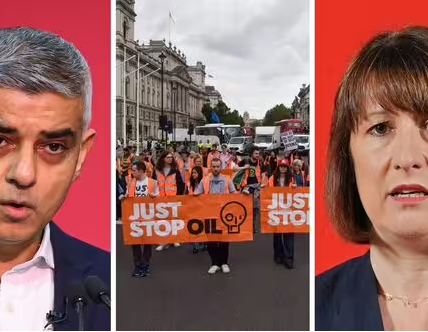The core spending power of councils is set to increase by 2.6% a year from next year

Rachel Reeves leaves 11 Downing Street on Wednesday (Image: Wiktor Szymanowicz/Future Publishing via Getty Images)
Council tax bills are set to rocket at their fastest pace for two decades following Rachel Reeves‘ spending review, the chief of the Institute for Fiscal Studies has warned.
Paul Johnson said that local government in England fared “perhaps a little bit better than it might have expected” from the Chancellor’s update on Wednesday, but he cautioned the “sting in the tail” was the hypothesis that “council tax bills will rise by 5% a year” as part of the fiscal setup.
According to forecasts, councils’ core financial muscle is expected to swell by 2.6% a year starting from next year and with most authorities ready to opt for 5% surges – council tax demands could soar at unprecedented rates not seen since the period from 2001 to 2005, Mr Johnson mentioned on Thursday.
On the same subject, Ms Reeves confirmed to ITV on Wednesday that there would be no leap beyond the 5% annual hike in council tax.
She said: “The previous government increased council tax by 5% a year, and we have stuck to that. We won’t be going above that.

Bills are going to keep rising, it has been predicted (Image: coldsnowstorm via Getty Images)
“That is the council tax policy that we inherited from the previous government, and that we will be continuing.”
The health service emerged as the greatest benefactor from Wednesday’s pronouncements, destined to enjoy a colossal £29 billion uplift to its budget each year when adjusted for inflation. Echoing this sentiment, Ruth Curtice, the chief executive of the Resolution Foundation, declared that Britain seems to be moulding into a “National Health State”.
The policy institute noted that Ms Reeves’ financial declarations aligned with a worrying propensity to prioritise NHS funding over other public services.
Ms Curtice said: “Health accounted for 90% of the extra public service spending, continuing a trend that is seeing the British state morph into a National Health State, with half of public service spending set to be on health by the end of the decade.”
Defence also emerged as a beneficiary from Wednesday’s fiscal outline, according to Ms Curtice, who remarked upon a notable rise in capital spending contrasted with an overarching £3.6 billion real-terms reduction in departmental investments.
Echoing these sentiments, the Institute for Fiscal Studies (IFS) concurred about the “substantial” allocations towards the NHS and defence occurring at the detriment of other sectors, though Mr Johnson warned such measures might yet prove insufficient.
Sharing his immediate thoughts post-review, Mr Johnson said: “Aiming to get back to meeting the NHS 18-week target for hospital waiting times within this Parliament is enormously ambitious – an NHS funding settlement below the long-run average might not measure up.
“And on defence, it’s entirely possible that an increase in the Nato spending target will mean that maintaining defence spending at 2.6% of GDP no longer cuts the mustard.”
Ms Curtice noted that low and middle-income families had benefited significantly from the spending review, following two rounds of tax hikes and welfare cuts. The poorest fifth of families is expected to gain an average of £1,700 from increased spending on schools, hospitals, and the police.
However, she cautioned that without economic growth, another round of tax increases might be necessary in the autumn to balance the books. Ms Curtice said: “The extra money in this spending review has already been accounted for in the last forecast. But a weaker economic outlook and the unfunded changes to winter fuel payments mean the Chancellor will likely need to look again at tax rises in the autumn.”
Contrarily, after presenting her spending review, Ms Reeves asserted that she would not need to increase taxes to cover her spending review. She said on GB News: “Every penny of this is funded through the tax increases and the changes to the fiscal rules that we set out last autumn.”



